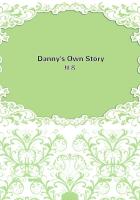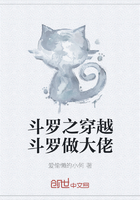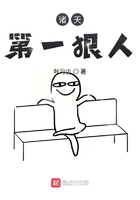'Very good, then take it there!' It was at the foot of a pine-tree, and the place had been exactly described. He brought the money, buried it at the foot of the tree, and came and joined me. I had hidden myself close by. There I stayed, with my man, for six mortal hours, M. della Rebbia. I'd have staid three days, if it had been necessary. At the end of six hours a /Bastiaccio/, a vile money-lender, made his appearance. As he bent down to take up the money, I fired, and I had aimed so well that, as he fell, his head dropped upon the coins he was unearthing. 'Now, rascal,' said I to the peasant, 'take your money, and never dare to suspect Giocanto Castriconi of a mean trick again!'
"The poor devil, all of a tremble, picked up his sixty-five francs without taking the trouble to wipe them. He thanked me, I gave him a good parting kick, and he may be running away still, for all I know."
"Ah, cure!" said Brandolaccio, "I envy you that shot! How you must have laughed!"
"I had hit the money-lender in the temple," the bandit went on, "and that reminded me of Virgil's lines:
. . . " 'Liquefacto tempora plumbo Diffidit, ac multa porrectum, extendit arena.'
"/Liquefacto!/ Do you think, Signor Orso, that the rapidity with which a bullet flies through the air will melt it? You who have studied projectiles, tell me whether you think that idea is truth or fiction?"
Orso infinitely preferred discussing this question of physics to arguing with the licentiate as to the morality of his action.
Brandolaccio, who did not find their scientific disquisition entertaining, interrupted it with the remark that the sun was just going to set.
"As you would not dine with us, Ors' Anton'," he said, "I advise you not to keep Mademoiselle Colomba waiting any longer. And then it is not always wise to be out on the roads after sunset. Why do you come out without a gun? There are bad folk about here--beware of them! You have nothing to fear to-day. The Barricini are bringing the prefect home with them. They have gone to meet him on the road, and he is to stop a day at Pietranera, before he goes on to Corte, to lay what they call a corner-stone--such stupid nonsense! He will sleep to-night with the Barricini; but to-morrow they'll be disengaged. There is Vincentello, who is a good-for-nothing fellow, and Orlanduccio, who is not much better. . . . Try to come on them separately, one to-day, the other to-morrow. . . . But be on the lookout, that's all I have to say to you!"
"Thanks for the warning," said Orso. "But there is no quarrel between us. Until they come to look for me, I shall have nothing to say to them."
The bandit stuck his tongue in his cheek, and smacked it ironically, but he made no reply. Orso got up to go away.
"By the way," said Brandolaccio, "I haven't thanked you for your powder. It came just when I needed it. Now I have everything I want . . . at least I do still want shoes . . . but I'll make myself a pair out of the skin of a moufflon one of these days."
Orso slipped two five-franc pieces into the bandit's hand.
"It was Colomba who sent you the powder. This is to buy the shoes."
"Nonsense, Lieutenant!" cried Brandolaccio, handing him back the two coins. "D'ye take me for a beggar? I accept bread and powder, but I won't have anything else!"
"We are both old soldiers, so I thought we might have given each other a lift. Well, good-bye to you!"
But before he moved away he had slipped the money into he bandit's wallet, unperceived by him.
"Good-bye, Ors' Anton'," quoth the theologian. "We shall meet again in the /maquis/, some day, perhaps, and then we'll continue our study of Virgil."
Quite a quarter of an hour after Orso had parted company with these worthies, he heard a man running after him, as fast as he could go. It was Brandolaccio.
"This is too bad, lieutenant!" he shouted breathlessly, "really it is too bad! I wouldn't overlook the trick, if any other man had played it on me. Here are your ten francs. All my respects to Mademoiselle Colomba. You have made me run myself quite out of breath. Good-night!"














